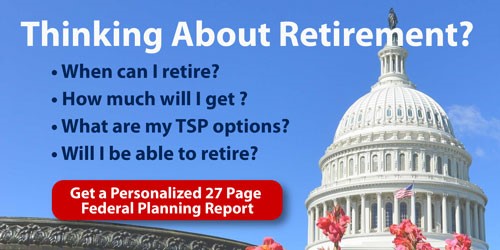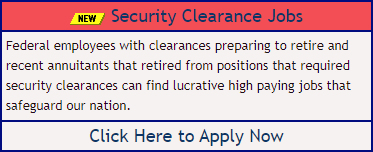The Federal Employees Health Benefits open season [2] is just around the corner, running from November 8th through December 13th of this year. It will not be delayed due to COVID. Federal employees and annuitants can enroll in the program, change enrollments, change to another FEHB plan or plan option or cancel an existing enrollment.
New protections will help to minimize surprise billing that has caught many off guard over the years.
One of the biggest “gotchas” in health insurance is what can happen to the unwary consumer who uses a provider that isn’t in the “preferred provider” network of the consumer’s health plan. Some plans cover out-of-network care at an increased enrollee share, but some don’t cover that care at all. And the sky can be the limit for the charges that the enrollee may face when going out of network. Even the conscientious enrollee can get trapped in this morass. For example, you may be unconscious after an accident and taken to the emergency room where either the emergency physician or the anesthesiologist may not be in your network. Or you may be taken while unconscious to the nearest hospital by ambulance (or even worse, by air ambulance), and pay an exorbitant fee for that trip. Even an astute buyer can be caught in a surprise billing trap.
Recently, one of the coauthors of this article underwent an outpatient surgical procedure. The facility was a network provider in a good FEHB health plan. It never occurred to him to check that the anesthesiologist was in network, since previous experience had been that outpatient rates covered all costs, including anesthesia, when getting outpatient medical care. He is starting negotiations over the thousand-dollar surprise anesthesia bill he received a month later.
In the FEHB program, this problem is reduced for federal annuitants [4], since under a 1990 law the most that any Medicare provider can charge federal annuitants is 15% more than the regular Medicare rate (this is called the “limiting charge”), and the Medicare rate is tightly controlled. This protection is available to all annuitants of any age, whether enrolled in Medicare [5] or not. But not all providers participate in Medicare, so even this protection is not foolproof. Most Americans, however, aren’t so lucky as to have such a protection. And most FEHB enrollees aren’t retired. So, the big “surprise billing” loophole in health insurance protections has been a perennial problem for most Americans.
But lo and behold, sometimes the political system works to fix things that are broken. And surprise billing is a prime example. Last year Congress acted on a bipartisan basis to pass the “No Surprises Act”. This summer the Departments of HHS, Treasury, and Labor published a 400-page rule to implement the new law. The length of the rule was needed to deal with some of the intricacies of the law, which had to deal with many contingencies. For example, the law and rule had to deal with the amount that the out-of-network provider would be paid by the health plan, defining what counted as a medical emergency, establishing appeals procedures, and more. The law and rule take effect on January 1, 2022.
Under the new law, which applies to all group health plans, the basic model is that surprise billing is banned for emergency services, with the patient required to pay no more than what he or she would pay in coinsurance and deductibles for in-network care. The law also bans prior authorization requirements for emergency services, whether the provider is in-network or not. The law also covers the situation where for a non-emergency service the patient sees a network provider but gets care from both that provider and a non-network provider such as an anesthesiologist. The law does have a few loopholes, the biggest of which is that it doesn’t cover regular ambulance services (air ambulances are covered). Otherwise, it covers medical care delivered by a physician, hospital, or outpatient provider such as an ambulatory surgical service.
But there are still important “buyer beware” angles. If you choose a non-network provider, and are not a federal annuitant, the only sure way to protect yourself against any surprise is to agree on a price before any expensive service. For example, Medicare pays for basic cataract lens implants, but not for other kinds of lens implants that have more features and cost more. And despite the 1990 law’s legal protection, a federal annuitant should take care to make sure that he or she uses a physician who has not opted out completely from Medicare. Moreover, even the Medicare payment limit on a particular procedure may be in the thousands of dollars, a whole lot higher than that $20 or $40 copay (or no copay) that you pay now when using a network provider.
For those annuitants with Medicare, enrolling in an FEHB plan adds a layer of safety when your plan covers out-of-network providers at the same enrollee cost sharing as for in-network providers, but there is still risk if you use a provider who has completely opted out of Medicare or get a procedure that Medicare does not cover. Moreover, most plans that provide this benefit charge more than most plans that do not. Many plans offer in and out-of-network coverage. However, the out-of-network reimbursement is generally less than what in network coverage provides. So even though the law now protects health plan enrollees in both the public and private sectors against the worst kinds of true surprises, it does not eliminate the need to check carefully before undergoing any expensive procedure.
Article by Walton Francis and Dennis Damp. Walton Francis and Kevin Moss are the experts who prepare Checkbook’s Guide to Health Plans for Federal Employees for the nonprofit Center for the Study of Services. The 2022 Guide will be available on November 8 at the beginning of Open Season, and is available now for pre-ordering the Checkbook Guide online [6] or by calling 888-596-0729. Federal Retirement readers receive a 20% discount by entering promo code FEDRETIRE at checkout.
Helpful Retirement Planning Tools
- The Ultimate Retirement Planning Guide [7]
- Evaluate Your Insurance Needs [8]
- TSP Guidance [9]
- Medicare Guide [5]
- Social Security Guide [10]
- Master Retiree Contact List [11] (Important contact numbers and information)
- Annuity Calculator [12](FREE Excel chart estimates annuity growth)
Disclaimer: The information provided may not cover all aspect of unique or special circumstances, federal regulations, medical procedures, and benefit information are subject to change. To ensure the accuracy of this information, contact relevant parties for assistance including OPM’s retirement center. Over time, various dynamic economic factors relied upon as a basis for this article may change. The advice and strategies contained herein may not be suitable for your situation and this service is not affiliated with OPM or any federal entity. You should consult with a financial, medical or human resource professional where appropriate. Neither the publisher or author shall be liable for any loss or any other commercial damages, including but not limited to special, incidental, consequential, or other damages.
Last 5 posts by Dennis Damp
- Down But Not Out – Imagine if This Was You! [14] - April 12th, 2024
- Is Working in Retirement A Necessity Today? [15] - April 5th, 2024
- Retirement Progression – One Day at a Time to Infinity [16] - March 15th, 2024
- Fixed Income Investment Update – Bonds & More [17] - March 8th, 2024
- Updated Guidance, Clarifications, & Observations [18] - February 23rd, 2024
- Estate Planning Guide Revisited – Setting up Your Plan [19] - February 9th, 2024
- Considering Your Options – Should You Stay the Course? [20] - February 2nd, 2024
- Tax Forms Availability and Annuity Statements [21] - January 26th, 2024
- TSP RMDs & Withdrawals Plus Site Navigation Tips [22] - January 19th, 2024
- Preparing for the New Year - 2024 Updates [23] - January 5th, 2024
- 2023 in the Rear View Mirror – Observations and Updates [24] - December 15th, 2023
- T-Bills, Savings Bonds, and CD Investments in the Spot Light [25] - December 8th, 2023


